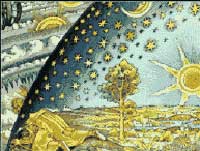Cosmos and Culture: Science in History - ARTS1301
Faculty: Faculty of Arts and Social Sciences
School: School of Humanities
Course Outline: School of Humanities Course Outlines
Campus: Kensington Campus
Career: Undergraduate
Units of Credit: 6
EFTSL: 0.12500 (more info)
Indicative Contact Hours per Week: 3
Enrolment Requirements:
Excluded: SCIF1131
Excluded: HPSC1100
CSS Contribution Charge: 1 (more info)
Tuition Fee: See Tuition Fee Schedule
Further Information: See Class Timetable
Available for General Education: Yes (more info)
View course information for previous years.
Description
Subject Area: History & Philosophy of Science
This course can also be studied in the following specialisation: History
Examines the history of science (including medicine) from antiquity to the twentieth century. It places special emphasis on the role of contextual factors (philosophical, social, political, cultural and technological) in the development and changing character of science over time. The central theme of the course is that all world-views, or accounts of the cosmos, are products of particular cultures, and that we should not expect the science of the past to look like, or be aiming at, our present science. Contextual study of the history of science permits the recognition of distinctive styles of science in the past, thus providing us with access to different ways of seeing (and being in) the world, while also enriching our understanding of the special character of contemporary science. Topics include: historiography of science; Greek and Hellenistic natural philosophy; science in Late Antiquity; Medieval science; Renaissance science; the Copernican Revolution; mechanical philosophy and the 'Scientific Revolution'; Newtonianism and Enlightenment science; natural history and the order of nature; Romantic science and the Counter-Enlightenment; the Darwinian Revolution; laboratory medicine; science and industrial research; the twentieth-century physics revolutions and their impact on philosophy of science; science-based industry and the creation of 'Big Science'; the Cold War and the physics of life; science and globalisation; the 'Science Wars'.









